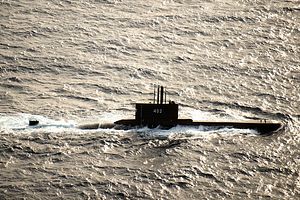This week, South Korean Defense Minister Song Young-moo paid a visit to Indonesia as part of a broader Southeast Asia tour. Song’s trip to Indonesia, which saw him meet top Indonesian officials and discuss a range of security issues, offered a glimpse into what to expect for defense ties this year as both countries look to boost cooperation as part of their new special strategic partnership agreed to last year.
Indonesia and South Korea have a relationship that dates back to 1973. Over the years, ties have seen several advances in the economic and political realms, with South Korean companies being among the largest investors in Indonesia and both countries trying to forge cooperation in various diplomatic issues as middle powers, including as part of the MIKTA grouping together with Mexico, Turkey, and Australia. Relations have also been expanding in the defense realm in recent years, with Indonesia being among the biggest importers of South Korean defense equipment and collaboration on projects including the joint development of the new KF-X/IF-X fighter aircraft and submarines (See: “Indonesia Still Mulling New Submarine Purchase”).
Since coming to office last year, South Korean President Moon Jae-in has been outlining a “New Southern Policy” aiming to deepen connections between South Korea and Southeast Asian states, with Indonesia playing an important role in that initiative. Last November, Moon paid a state visit to Indonesia and the two countries agreed to elevate their ties from a strategic partnership (inked in 2006) to a special strategic partnership. The quest to elevated ties included the defense realm as well, with a commitment to further defense industry cooperation, explore other consultation mechanisms such as a two-plus-two meeting, and boost cooperation in areas like counterterrorism and cybersecurity.
South Korean Defense Minister Song Young-moo’s visit to Indonesia this week, which was part of a Southeast Asian tour that included stops in Singapore and Thailand, was an opportunity to see how both sides are actually forging more defense cooperation in 2018. During his visit, Song held talks with Indonesian officials including his counterpart Ryamizard Ryacudu and paid a courtesy call on Indonesian President Joko “Jokowi” Widodo.
Apart from the discussion of regional issues such as North Korea, the South China Sea, the Rohingya crisis, and terrorism, the Indonesian defense ministry said that the talks between Song and Ryacudu had touched on cooperation with respect to defense equipment, especially submarines. Indonesia had ordered three Chang Bogo-class submarines from South Korea as it seeks to ramp up its submarine capabilities, with one arriving in the middle of last year. After meeting with Ryacudu, Song visited Indonesian state-owned shipbuilder PT PAL in Surabaya and Indonesia’s Eastern Fleet there, where he saw the first submarine that was produced in South Korea and delivered to Indonesia last year (See: “What’s Next for Indonesia’s Shipbuilding Ambitions in 2018?”).
The KFX/IFX program, by contrast, was unsurprisingly not given as much high-level attention in the Indonesian defense ministry’s official statement, with reports emerging over the past few months of Indonesia being behind its payments for the program due to budgetary constraints and South Korea being concerned that the program could be in peril. South Korean media reported that Song had pointed out during the meeting that the program was important for Indonesia’s development as well and that both countries should work to develop it as a symbol of bilateral cooperation.
Beyond defense equipment-related issues, Ryacudu said that the two countries had also discussed cooperation in other areas as well, including boosting intelligence collaboration amid the terrorism threat. Song, for his part, emphasized that the path forward that Moon and Jokowi had agreed to during the former’s visit to Indonesia last November offered a good start to strengthening the special strategic partnership. With Jokowi expected to visit South Korea sometime this year to help further boost ties, the trajectory of defense ties will continue to be interesting to watch through the course of 2018.































